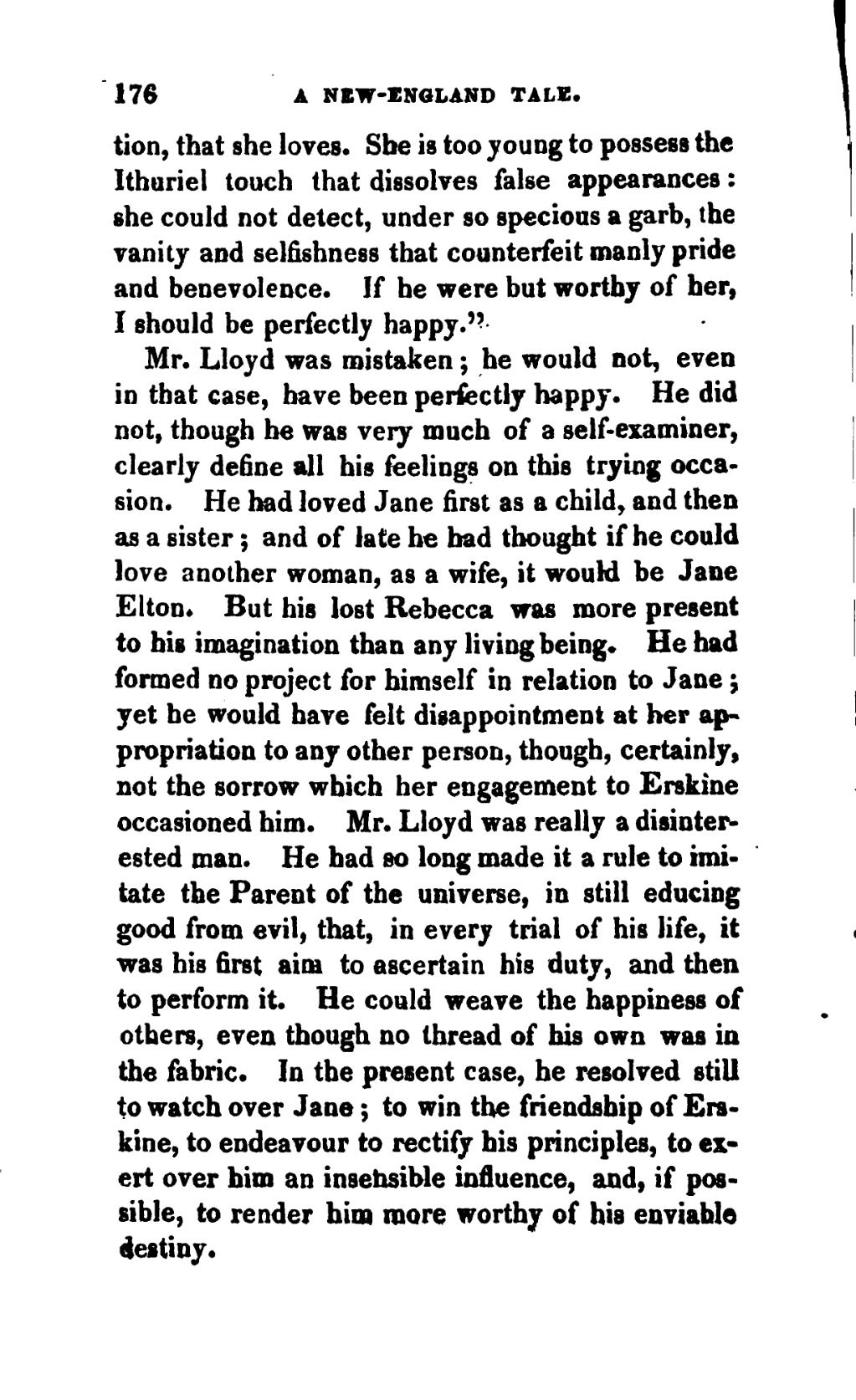tion, that she loves. She is too young to possess the Ithuriel touch that dissolves false appearances: she could not detect, under so specious a garb, the vanity and selfishness that counterfeit manly pride and benevolence. If he were but worthy of her, I should be perfectly happy."
Mr. Lloyd was mistaken; he would not, even in that case, have been perfectly happy. He did not, though he was very much of a self-examiner, clearly define all his feelings on this trying occasion. He had loved Jane first as a child, and then as a sister; and of late he had thought if he could love another woman, as a wife, it would be Jane Elton. But his lost Rebecca was more present to his imagination than any living being. He had formed no project for himself in relation to Jane; yet he would have felt disappointment at her appropriation to any other person, though, certainly, not the sorrow which her engagement to Erskine occasioned him. Mr. Lloyd was really a disinterested man. He had so long made it a rule to imitate the Parent of the universe, in still educing good from evil, that, in every trial of his life, it was his first aim to ascertain his duty, and then to perform it. He could weave the happiness of others, even though no thread of his own was in the fabric. In the present case, he resolved still to watch over Jane; to win the friendship of Erskine, to endeavour to rectify his principles, to exert over him an insensible influence, and, if possible, to render him more worthy of his enviable destiny.
